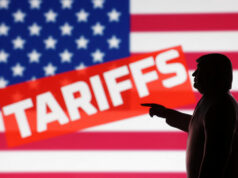Hyundai car sales fall 27.6% amid ash fall, virus
HYUNDAI Asia Resources Inc. (HARI) vehicle sales dropped 27.6% in January as consumer demand fell because of the Taal Volcano ash fall and the new coronavirus (COVID-19) outbreak, the local distributor of the South Korean carmaker said on Tuesday.
Ma. Fe Perez-Agudo, HARI president and chief executive officer, said in a statement that the volcanic eruption and COVID-19 later in the review month “caused a temporary setback, dampening demand and supply chain disruptions, making 2020 a less resilient year.”
As a result, car sales in January fell to 2,046 units from 2,825 in the same month last year.
But given the Philippines’ stable economic fundamentals — a stable exchange rate, strong private consumption, lower inflation and interest rates, and robust public spending — the impact of these factors can be well-managed, the distributor said.
HARI said the Taal ash fall caused several automotive dealerships and facilities to close in the National Capital Region and Calabarzon (Cavite, Laguna, Batangas, Rizal, and Quezon) for several days.
The company said consumers has taken a conservative approach amid the COVID-19 epidemic and cut down on buying big-ticket items such as vehicles while staying at home.
Health safety precautions are being implemented in international and local ports, HARI said, and international shipping lines have reduced available seaborne vessels because of weak demand. The Hyundai distributor said these actions resulted in lower sales volumes as shipments were delayed.
In January, passenger car sales fell 33% to 967 units from 1,443 units a year earlier. Light commercial vehicle sales dropped 19.9% to 1,053 units from 1,315. But Hyundai H-100 light truck sales increased by 15.3%, the leader in its segment.
Commercial vehicle sales dropped 62.7% to 24 units from 65 a year earlier, but the company remains optimistic as it rolls out its Hyundai H-100 Modern Jeepney Class 1 and HD50S Modern Jeepney Class 2 to transport cooperatives nationwide. The Public Transport Alliance of Gensan has also ordered over 300 units of the HD50S Modern Jeepney Class 2.
The jeepneys, which Hyundai entered into with its participation in the government’s public utility vehicle modernization program, received certificates of compliance from the Department of Transportation last year.
Ms. Perez-Agudo said that HARI would work in the coming months to recover from the sales downturn.
“Hyundai has experienced several boom-bust cycles and disruptions in the industry but one thing has never changed — our unwavering commitment to provide quality vehicles, premium services, and worry-free ownership. We will work doubly hard to catch up in the next few months while rolling out new products and promos relevant to customers,” she said. — Jenina P. Ibañez



